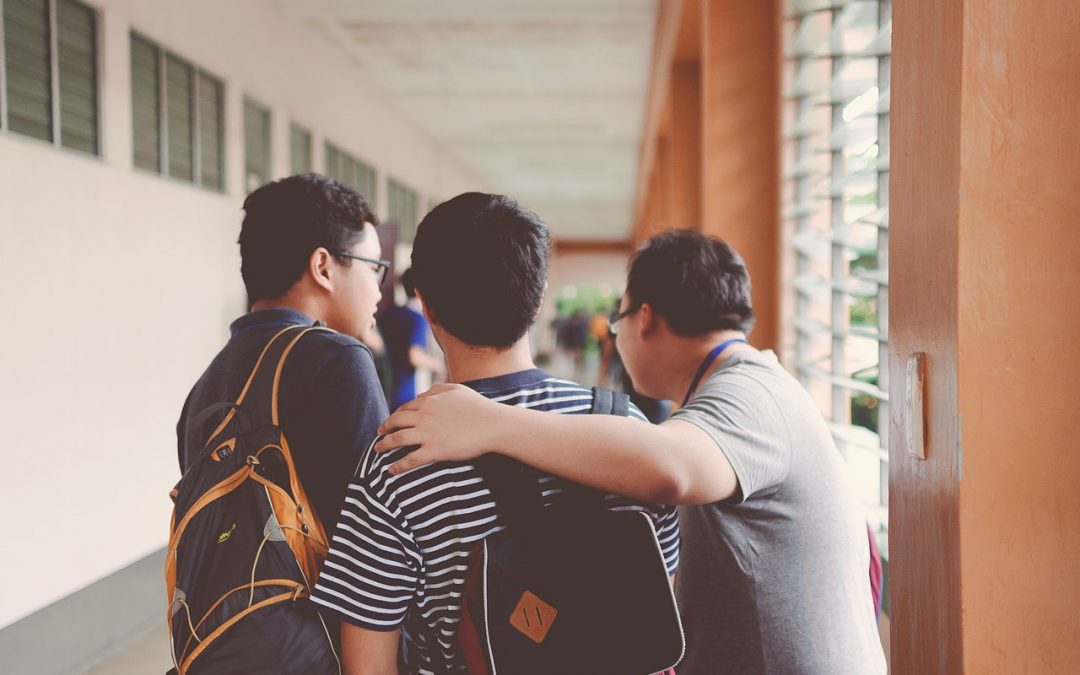Parenting kids in the tween years brings many wonderful and many challenging experiences.
The ups and downs of tween’s behavior is legendary (it’s the stuff you can remind them when their children reach this age). However, when their energy and mood fluctuations start to upset your balance, it’s time to consciously work on staying present and nonreactive.
Let’s look at some common ways in which parents leave the state of calm presence and enter a more frazzled or disrupted emotional state with their kids.
You become too entwined in their moods
To be helpful to your tween, understand the difference between empathy and compassion. With empathy, you can actually feel another’s pain or suffering. That’s because empathy activates areas of your brain to mirror the other person’s feelings and responses to their triggers. Although it’s a noble trait, too much empathy with your child can lead you toward intense distress of your own.
The alternative – remaining compassionate and at peace
Compassion is a cultivated, evolved approach that, like empathy, is based on warmth, caring and seeing your child’s suffering is much like our own. However, compassion is highly aware, alert and nonjudgmental. Compassion affords you the opportunity to be fully present to another’s pain without having to be in pain yourself.
You dismiss their issues, wants and concerns
Learn to distinguish non-reaction from non-response. No matter how tiresome and seemingly silly your child’s issues are, they genuinely need you to interact with them and guide them wisely. Shutting them down or shutting them out is not often helpful.
The alternative – observing without judgment or attachment
You won’t be able to find or help find solutions to all of your child’s issues, but can support them in solving their own problems. Rather than ignoring or belittling their concerns, commit to staying present. This means always being able to hear and listen, even the same thing repeatedly. Many times, all a child – or adult – needs is someone who will listen. Moreover, your state of compassionate presence allows you to listen and interact in ways that create the environment for others to untangle their issues and find their own resolutions.
You force your own way
As an adult with responsibilities you’re trained to get thing done efficiently. Drawing upon your work ethic and experience can be a great way to teach your child – as long as you stay present to the teaching moment. Instead it is all too easy to enforce parental authority to save time on completing tasks, all under the well-meaning phrase “it’s for their own good.”
The alternative – slow down and be committed to self observation
A commitment to compassionate self observation is necessary to promote your own mindfulness, peace of mind and well being. This can sometimes mean gracefully and maturely retracting harsh words or demanding tones, but retaining the opportunity to teach life skills and lessons to your tween. Refrain from judging yourself harshly, and then recommit to maintaining peaceful, productive communication.
Practice in other ways first. Mindful with plants or food. The same way that you don’t force in your meditation but gently return to focus from a distraction or interruption
Mindfulness is self training for a lifetime
Real patience and loving kindness
Wisdom is the result
The environmental energy changes
Child raising is a special kind of training in the mindfulness journey
Be able to separate from reactions to child’s behavior and words
Your mindfulness meditation training teaches you how to simply observe physical reactions in your body associated with your emotional states. Mindfulness gives you more freedom, or space between your outer experiences, the thinking and emotional patterns generated your inner circuitry.
You’ll experience more moments of being able to choose your response, rather than just reacting.
You can cultivate and strengthen your own compassion through simple mindfulness practices.
- Start to become attuned to your own physical changes when the person you support is experiencing distress. Bring closer attention to the details of your physical response. Has your breathing changed. Is any part of your body feeling tension or discomfort? Redirect attention away from identifying or labeling your own emotions. Consciously regulate your breath and tighten and release, or stretch areas of tension.
- Practice non judgmentally observing your thoughts and feelings to exercise and increase your self-compassion. Rather than disowning, ignoring or suppressing the feelings, you allow them to emerge without shame, in a safe space.
Through mindfulness practice, you will gain important self-awareness about how and where stress and frustration physically reside in your body. You’ll learn to break cycles of repetitive thoughts and feelings by learning to focus on the physical sensations with nonjudgmental attention and regulated breath work techniques. You’ll train your reactions to your inner experiences to turn from self-judgment to self-compassion. In this way, you’ll cultivate the ability to remain cheerfully and lovingly present to your child all through the awesome tween years!











